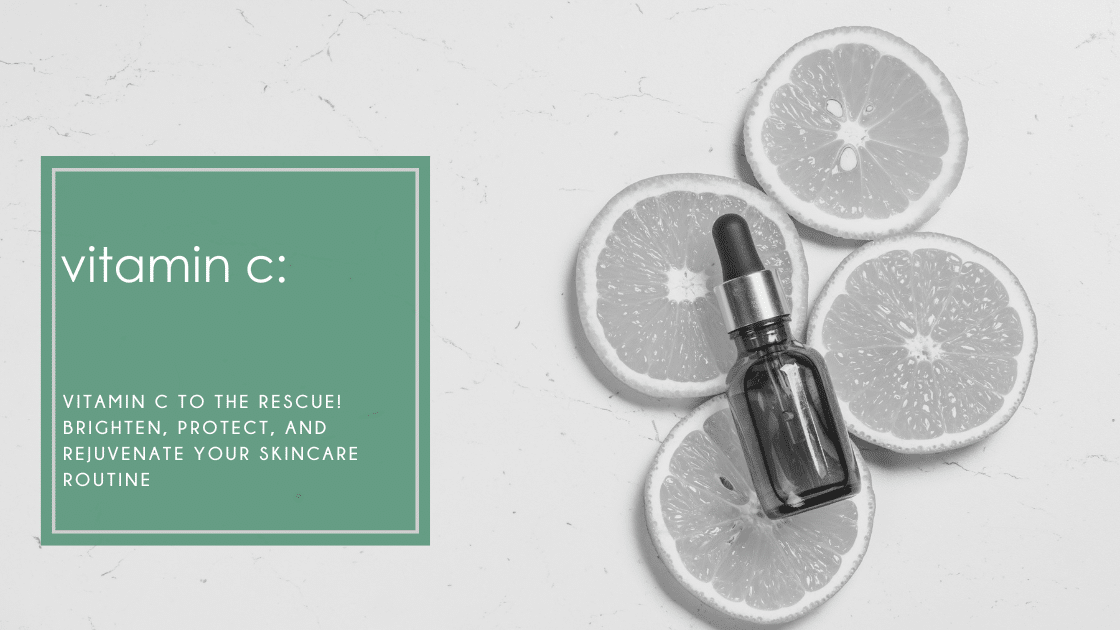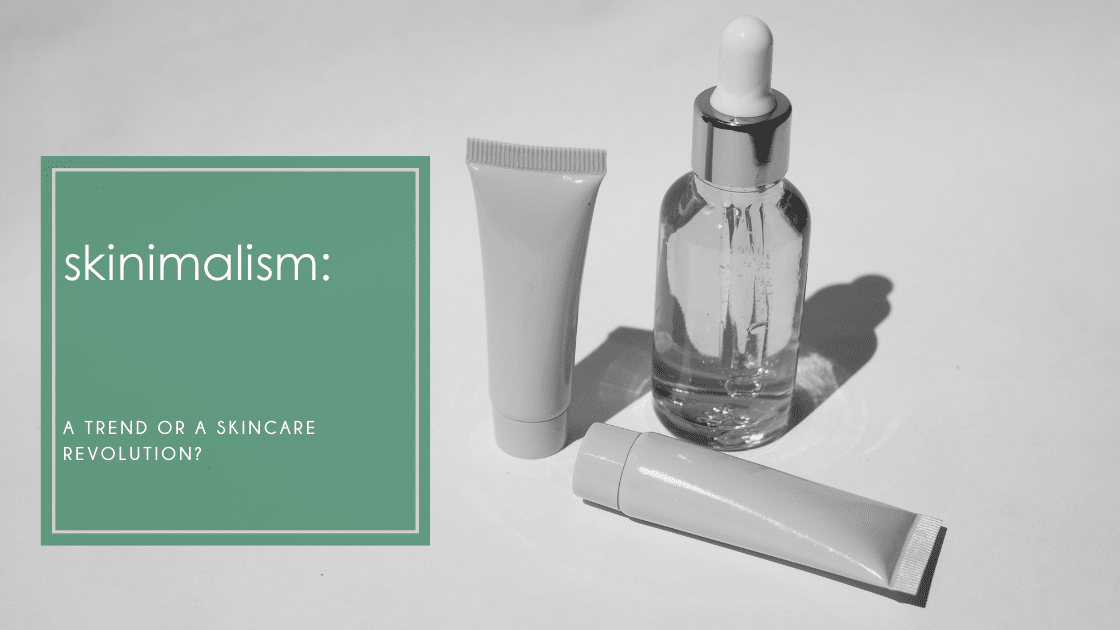Vitamin C: Your Ultimate Guide to Why Your Skin Needs This Now
Vitamin C to the Rescue! Brighten, Protect, and Rejuvenate Your Skincare Routine
Vitamin C is an ingredient that has been used in skincare for many years – and for good reason! It has the powerful ability to fight sun damage, combat aging, and even tone out skin. It’s no wonder that this antioxidant is the star in many skincare routines. Today, we are digging into the science and secrets of this ingredient. From its various forms, when to use it, and how to incorporate it into your skincare routine. This guide will help you understand why this ingredient deserves a key spot in your skincare routine.
Let’s dig in!
An antioxidant that protects cells from damage caused by free radicals. According to PubMed, free radicals are “Any molecular species capable of independent existence that contains an unpaired electron in an atomic orbital. The presence of an unpaired electron results in certain common properties that are shared by most radicals. Many radicals are unstable and highly reactive.” What does this mean for your skin? These unstable molecules accelerate aging, break down collagen and elastin – key to youthful skin! Antioxidants work to neutralize free radical damage, slowing down visible signs of aging and promoting skin health.
Why Should I Use Vitamin C on My Skin?
The incredible benefits are worth checking out:
🔹Antioxidant: protects against free radicals and environmental damage
🔹Skin Brightening: repairs sun damage, dark spots, and evens skin tone
🔹Collagen Boosting: essential for skin’s firmness and elasticity
🔹UV Protection: enhances defense against damaging UV rays
🔹Anti-Inflammatory: improves skin health by soothing irritation and redness
🔹Wound Healing: supports skin regeneration and minimizes scars
🔹Hydration: strengthens skin barrier and promotes hydration
How Does Vitamin C Brighten the Skin?
You’ve heard that Vitamin C is known for skin brightening, but how does it actually work? First, let’s talk about skin pigmentation and how you get dark spots. Our skin produces a substance called Melanin, which gives our skin its color. Melanin is produced by Melanocyte cells, which act as a shield against UV damage. With sun exposure, melanocyte cells are activated and darken. After years of chronic sun exposure, these cells become damaged – causing them to overproduce melanin even when you are no longer in the sun. This leads to dark spots and an uneven complexion.
Vitamin C helps reduce melanin production and fades discoloration. However, it’s important to note that, in its purest form, also known as L-Ascorbic Acid, it is highly unstable and oxidizes quickly. It doesn’t penetrate the skin barrier, due to its water-soluble nature. PubMed states, “Vitamin C, as a water-soluble and charged molecule, is repelled by the physical barrier of the terminally differentiated epidermal cells. It is only when pH levels are below 4 and vitamin C is present as ascorbic acid that some penetration occurs, but whether this results in increased levels in the metabolically compromised stratum corneum is unknown. A great deal of effort has been put into the development of ascorbic acid derivatives for the purpose of topical application. Such derivatives need to ensure stabilization of the molecule from oxidation and also overcome the significant challenge of skin penetration.” Encapsulation and formulation matter. Manufacturers must stabilize it and use it at a specific pH to allow for proper skin penetration.
Sun Exposure
You’ve seen lots of articles and social media influencers talking about pairing with sunscreen to increase sun protection – it’s not hype! This is actually true. PubMed confirms, “Appreciable photoprotection can be obtained from the combination of topical vitamins C and E. We suggest that these natural products may protect against skin cancer and photoaging.” Apply your serum under sunscreen to increase protection. This does NOT replace your sunscreen, however, it boosts your sun protection and enhances skin defense from UV rays.
Can You Use Vitamin C on Sensitive Skin?
Sensitive skin folks: take note here. We err on the side of caution with sensitive skin. Vitamin C is amazing, however, the scientific name is L-Ascorbic Acid, which means it IS an acid and can be irritating, especially at higher concentrations. Our preferred recommendation is a serum blend that includes hyaluronic acid, peptides, and Vitamin E. These ingredients soothe the skin, reduce skin irritation risk, and deliver incredible benefits.
Can I Use During Pregnancy?
Yes, it is safe to use during pregnancy. It promotes hydration, boosts collagen, and gives you a radiant glow – something every expecting mom can appreciate.
Where Does Vitamin C Fit in a Skincare Routine?
Vitamin C is best used in the morning because it’s an antioxidant and works to fight against UV and environmental stressors. We prefer to use a serum form, which offers the best penetration and efficacy.
Can You Use Every Day?
Absolutely! Daily use of vitamin C builds up antioxidant defense, supports collagen, improves skin tone, and reduces inflammation.
Can I Use Too Much?
Yes, you can overdo it. Because it’s an acid, it can cause skin irritation. Stick to one high-quality serum – avoid layering with cleansers, toners, and moisturizers that also contain Vitamin C. When Vitamin C sits on top of the skin, skin irritation will occur.
What Can I Pair With Vitamin C?
Here’s how to pair with other serums:
🔹Niacinamide: Repairs cell damage and increases cellular energy.
🔹Hyaluronic Acid: Increases hydration levels in the skin. We suggest applying hyaluronic acid first, then layering on top
🔹Retinol: Use separately. Both are active ingredients and can irritate the skin. Use Vitamin C in the morning and Retinol at night
🔹Peptides: A chain of amino acids to firm skin, boost collagen, and increase skin hydration
Our Skincare Recommendations
When it comes to achieving real results, quality matters. Professional-grade serums use stable, high-quality, high-potency forms of Vitamin C that are clinically formulated to penetrate the skin barrier. Unlike most over-the-counter alternatives, which degrade quickly or don’t absorb at all. By choosing professional serums, you’re not just applying a trend to your skin – you’re investing in science-backed skincare that is proven to work. The formulas combine Vitamin C with supportive ingredients like hyaluronic acid, peptides, and ultraglycans to deliver deep hydration, improved firmness, reduced dark spots, and brighter, healthier skin.
Here are our top picks:
Vitamin C ampoules
Super potent and fast-acting. Ideal for morning and night, these ampoules contain hyaluronic acid and ultraglycans to improve firmness, elasticity, and overall skin texture. NOTE: Use within 2 days to avoid oxidation and preserve effectiveness!!
Peptides + Vitamin C
A client favorite that blends brightening power with skin-repairing peptides and hyaluronic acid. This multitasking serum works best morning and night to target fine lines, dullness, and uneven texture.
Vitamin C + Hyaluronic Acid
A go-to for bright, hydrated, and smooth skin. Encapsulated Vitamin C keeps the formula stable, while hyaluronic acid boosts hydration for a visibly plump and radiant complexion. Ideal for morning use under sunscreen.
👉Click here to shop for skincare
Why Now Is The Time To Invest In Your Skin
Your skin is the largest organ of your body – and one of the first to show signs of aging, sun damage, and stress. Taking care of your skin isn’t just self-care; it’s long-term health to give you confidence. By using targeted, professional-grade skincare, you can see visible improvements and protect your skin further from damage. When you work with us, you’re not just buying products – you’re gaining access to expert support, science-backed recommendations, and a team that genuinely cares about you. We simplify skincare by recommending blends that work smarter, not harder – so you get results without overwhelm.
Don’t wait for brighter, healthier skin – take the first step today!
Have questions? Drop them below. We’re here to help you boost your confidence!




